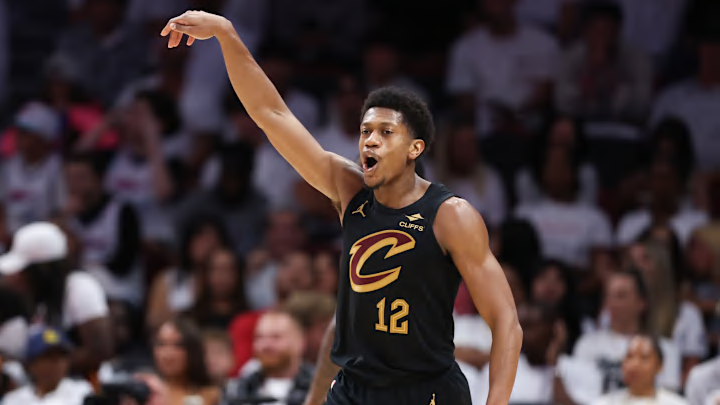A good point guard gets the offense moving, but a great point guard makes every teammate better when they take the floor. For the Cleveland Cavaliers, that's what Lonzo Ball will be.
Former second-overall pick Lonzo Ball may not have become the outright Los Angeles Lakers star that many expected. Early seasons of unsuccessful basketball and a devastating injury history have curbed his growth. Still, a healthy Lonzo is a dynamic two-way talent, often proving himself one of the most talented perimeter defenders and an impressive offensive engine.
With the Cavaliers, Ball's role will be as the second unit leader, backing up Darius Garland. During the most recent playoff run, the Cavs' offense came to a halt when Garland was sidelined with injury or mid-game for rest. Throughout the regular season, the Cavaliers' offense relied on constant ball movement and decisive action. Without Garland's presence, the Indiana Pacers could force the Cavs into unnecessary errors en route to an embarrassing gentleman's sweep.
That is the problem Lonzo Ball was brought in to solve. By adding a high-end playmaker like Ball, the Cavaliers can expect to see a constant offensive rhythm throughout every game. Even if Lonzo is hurt or resting, his tutelage could give Craig Porter, Jr. or Tyrese Proctor the lessons necessary to cover for him temporarily.
Lonzo's arrival will help every Cavalier. A defensive anchor and selfless offensive leader, the Cavs found an ideal role player for this hopeful Eastern Conference contender. One Cavalier, though, is likely to benefit most from his arrival in an attempt to integrate the perfect combo forward into Cleveland's system.
Lonzo Ball solves the De'Andre Hunter dilemma
Whether De'Andre Hunter assumes a starting role or remains a sixth man, the 3-and-D wing is going to be a critical piece in the Cavs' journey to realize the team's potential. Acquired at the last trade deadline, Hunter never found his perfect spot in Cleveland's rotation. With a shallow frontcourt, Hunter often slotted in as the backup power forward or a small-ball center.
Additionally, Hunter typically entered the game at the same time as Ty Jerome. Jerome, another Sixth Man of the Year candidate, was an obvious score-first talent. Though he could dish out timely assists, his primary focus was making tough shots and igniting the offense with his scoring prowess.
Hunter's scoring opportunities fell when he joined the Cavaliers, and it was clear that coach Kenny Atkinson was still figuring out how to utilize the talented forward. Jerome's heliocentric offensive approach often left Hunter waiting for a pass in the corner that rarely came. His usage rate fell from 24.2 percent with the Atlanta Hawks to 20.5 with the Cavaliers.
Lonzo Ball is the polar opposite to Jerome offensively. While Jerome was a high-usage, high-volume scorer, Ball is a crafty playmaker who aims to get his teammates involved rather than seeking his own shot. Hunter proved his scoring talent last season, and unlocking that potential again will be a key factor in Cleveland's success next season.
Defensively, adding a perimeter stopper like Lonzo allows Hunter to thrive as a floater and versatile option. Last year, Cleveland's poor defensive backcourt put Hunter in plenty of uncomfortable situations. Nance's arrival will keep Hunter at his natural small forward position more, and Lonzo Ball will maintain the arc while Hunter sits back as the perfect help defender.
De'Andre Hunter needs a good point guard who will find him and get him the ball. If he is a bench player again this year, Lonzo Ball is the perfect point guard to lead an offense that maximizes Hunter's best qualities. If the Cleveland Cavaliers keep Ball healthy, Hunter may have the best season of his career.
